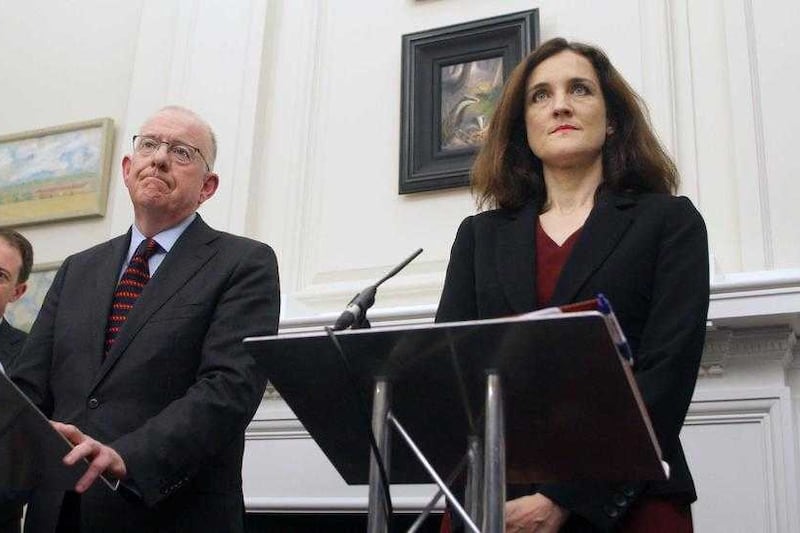It was depressing, but not particularly surprising, to discover that, according to a comprehensive survey published yesterday, the number of residents in flashpoint areas who want peace walls to stay in place is actually rising.
The report, commissioned by the Department of Justice and carried out by researchers from Ulster University, was based on interviews carried out in Belfast, Derry, Lurgan and Portadown over the last three years.
It indicated that, in 2012, 22 per cent of people insisted that the barriers should remain, but by 2015 this figure had jumped to 30 per cent, with the strongest opposition to any change coming from within the Protestant tradition.
The findings also suggested that a majority of Protestants in interface districts believed that their community had not benefited from the peace process, although this reflected a view which is not supported by official data.
According to the most recent study released by the Northern Ireland Statistics and Research Agency, the worst five overall districts for deprivation, and 17 of the worst 20, were all in Catholic neighbourhoods.
However, perceptions can often be as important as realities and there can be no doubt that Protestant alienation is still a significant factor in many sections of our society.
A majority of residents from all backgrounds felt that the peace walls sent out a bad image to the rest of the world but also feared an upsurge in anti-social behaviour or even sectarian violence if they came down.
Another disturbing aspect of the Ulster University survey was that more than four out of every ten people living beside peace walls had never interacted with those from a short distance away on the other side of the divide.
It was striking that a significant majority of those who had been involved in cross-community encounters regarded the experience as positive, and it is essential that every encouragement, including financial support where appropriate, is given to such initiatives.
A number of small steps can take us a very long way, and facilitating structures which allow Catholics and Protestants to meet and extend the hand of friendship must be regarded as a priority by the authorities.
It may well be the case that the high fences and metal gates which were erected on what was described as a temporary basis in the late 1960s cannot be removed for another prolonged period but we still need to look forward to the creation of a more relaxed and positive wider climate.



